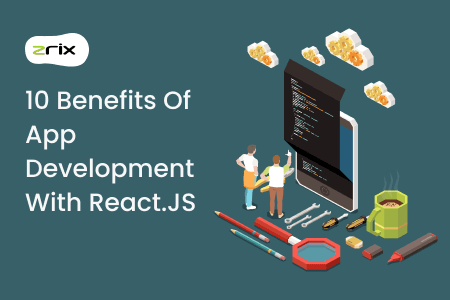In the perpetually advancing domain of web development, the selection of an optimal JavaScript framework is paramount for crafting high-performance and scalable applications. Among the myriad of choices, Vue.js and React.js stand as two of the most widely embraced technologies. Each possesses distinct advantages and inherent complexities, often leaving developers in a conundrum when deciding which to implement. This article endeavors to deliver an in-depth Vue vs React comparison, meticulously analyzing their performance, advantages, disadvantages, and critical attributes to ascertain which framework is superior for modern web development.
Quick Navigation
Overview of Vue.js and React.js
Vue.js Framework
Vue.js is an open-source JavaScript framework created by Evan You in 2014. It is known for its simplicity, flexibility, and ease of integration. Vue.js enables developers to build interactive and dynamic user interfaces with minimal effort. It follows the MVVM (Model-View-ViewModel) architecture, which makes it ideal for single-page applications (SPAs) and complex web interfaces.
Key Features of Vue.js:
- A reactive data-binding system
- Component-based architecture
- Simple and intuitive API
- Detailed documentation
- Virtual DOM for enhanced performance
React.js Framework
React.js, developed by Facebook in 2013, is one of the most widely used JavaScript libraries for building UI components. Unlike Vue.js, which is a full-fledged framework, React.js is primarily a library focused on the view layer. React follows a declarative approach and uses a component-based architecture to build scalable applications.
Key Features of React.js:
- Virtual DOM for fast rendering
- One-way data binding
- JSX syntax for writing UI components
- Strong community support
- Seamless integration with other libraries and tools
Vue.js vs React.js Performance
Performance plays a crucial role in choosing the right front-end framework. Both Vue.js and React.js leverage the Virtual DOM for efficient rendering, but they perform differently based on project size and complexity.
Vue.js Performance
- Faster for small to mid-sized applications due to its lightweight structure.
- Optimized rendering engine ensures smooth UI updates.
- Efficient reactivity system minimizes unnecessary re-renders.
- Built-in features like lazy loading enhance performance without extra dependencies.
React.js Performance
- Excels in large-scale applications with frequent UI updates.
- Efficient reconciliation algorithm speeds up rendering.
- Optimized for handling complex state management (e.g., Redux, Context API).
- Supports concurrent rendering for smoother interactions in data-heavy apps.

Vue.js vs React.js Pros and Cons
Vue.js: Pros & Cons
| PROS | CONS |
|---|---|
| Beginner-friendly – Simple syntax, easy to learn and integrate. | Smaller ecosystem – Fewer third-party libraries than React. |
| Lightweight & fast – Optimized for small to medium projects. | Less enterprise adoption – Not widely used in large-scale applications. |
| Reactive data binding – Real-time updates with minimal effort. | Limited corporate backing – Community-driven, unlike React (Meta-backed). |
| Flexible architecture – work as a full framework or integrate into projects. | |
| Comprehensive documentation – Well-structured guides for developers. |
React.js: Pros & Cons
| PROS | CONS |
|---|---|
| Strong community & corporate support – Backed by Meta (Facebook). | Steeper learning curve – JSX and state management can be complex. |
| Reusable components – Scalable and modular development. | Requires additional tools – Needs Redux, React Router, etc., for full functionality. |
| Rich ecosystem – Extensive third-party libraries and tools. | Complex state management – Handling state in large apps requires extra effort. |
| Optimized for complex UIs – Ideal for large, data-driven applications. | |
| High job demand – Widely adopted in the industry. |
Real-World Examples of Vue.js and React.js
| Companies Using Vue.js | Companies Using React.js |
|---|---|
| Alibaba | |
| Xiaomi | |
| Nintendo | Netflix |
| Laravel | Airbnb |
| Grammarly |
Market share of some of the most popular frontend JavaScript frameworks:

Top Online Courses for Vue.js & React.js
Best Courses to Learn Vue.js
- Vue - The Complete Guide (Udemy):
A highly-rated course that covers everything from the basics to advanced Vue.js development. - Vue.js 3: The Complete Guide (Academind on Udemy):
Covers Vue.js 3, composition API, Vue Router, and Vuex. - Front-End Web Development with Vue.js (Coursera):
A structured course that includes hands-on projects. - Vue Mastery Courses:
A platform dedicated to Vue.js learning with various free and paid courses.
Best Courses to Learn React.js
- React - The Complete Guide (Udemy):
A best-selling course that covers React.js from scratch, including hooks and Redux. - Full-Stack Web Development with React (Coursera):
A great course that also includes backend integration. - The Modern React Bootcamp (Udemy):
Focuses on React’s latest features like hooks and context API. - React.js Documentation & FreeCodeCamp Tutorials:
A great starting point for beginners who prefer free learning resources.
Vue.js vs React.js: Which is Better?
Choosing between Vue.js and React.js depends on your project requirements, team expertise, and long-term goals. Here’s a simple breakdown:
Choose Vue.js if:
- You are working on a small to medium-sized project
- You prefer a simple and easy-to-learn framework
- You want a lightweight and fast-performing application
Choose React.js if:
- You are developing a large-scale or enterprise-level application
- You need a robust ecosystem with third-party integrations
- You are looking for better long-term industry adoption
JavaScript Frameworks Comparison: Final Thoughts
Both Vue.js and React.js are excellent choices for modern web development. While Vue.js offers simplicity and ease of use, React.js provides flexibility and scalability. If you’re looking for react js development services, React is often the preferred choice for large-scale projects, while Vue.js is great for quick and efficient application development.
Ultimately, the best frontend framework depends on your specific use case, team skillset, and project goals. Whether you choose Vue.js or React.js, both frameworks provide the tools needed to build powerful, high-performance web applications.

